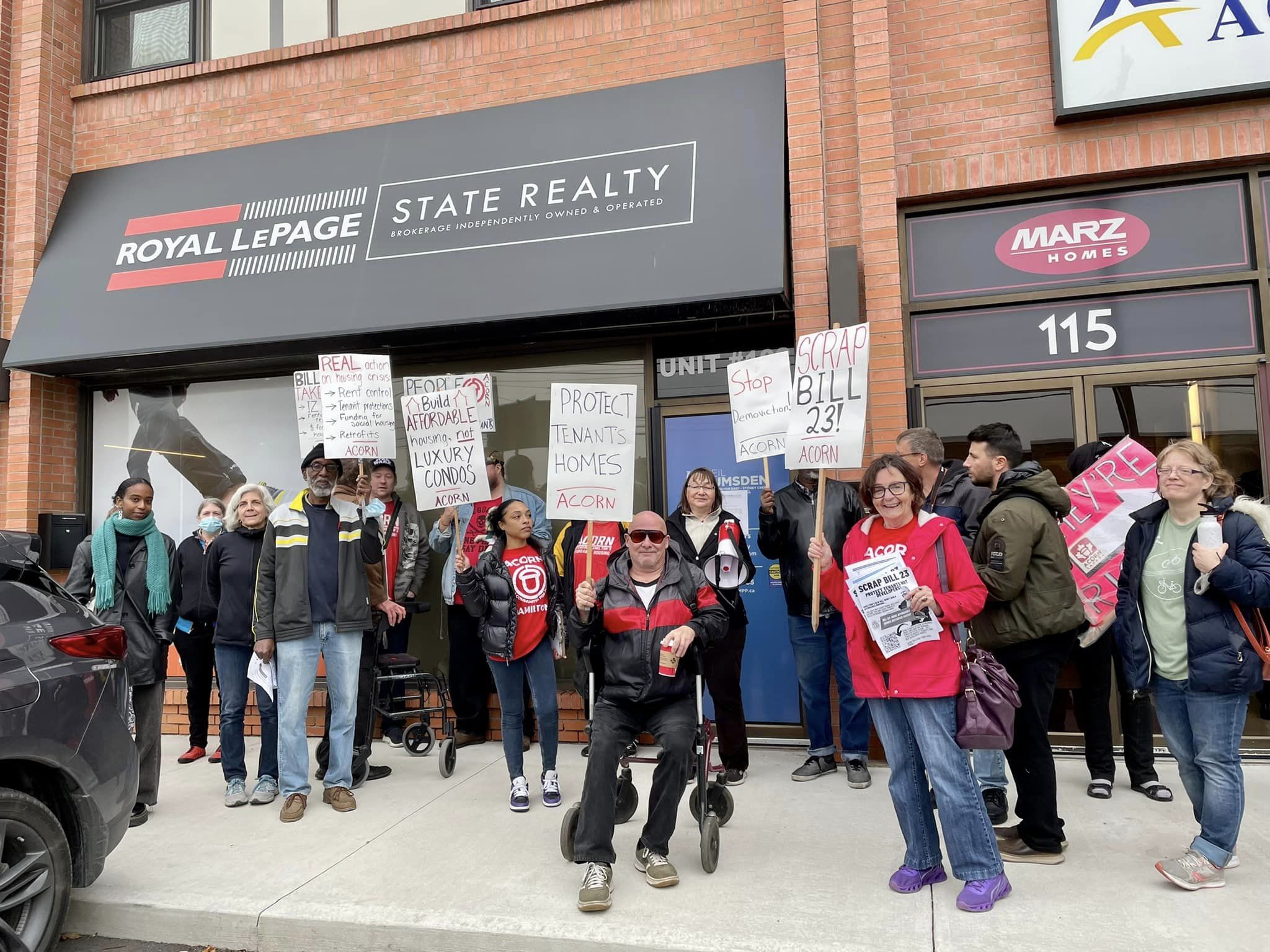The Spec: Ontario Bill 23 bad for Hamilton housing
Posted November 28, 2022
Canada’s housing crisis needs solutions and undoubtedly so, especially in Ontario where rents are skyrocketing and evictions continue unabated. The one solution that is seen as a panacea to the housing problem is build more, build faster which led the Ontario Progressive Conservative government to introduce Bill 23 — More Homes, Built Faster Act, 2022. The big headline is 1.5 million homes built in the next 10 years but there is a lot behind this number that needs to be examined.
Bill 23 overrides cities’ powers in more ways than one.
Just a few months ago ACORN celebrated the passing of the Inclusionary Zoning (IZ) bylaw in Toronto and subsequently in Mississauga. IZ is an important policy tool in the hands of the cities that allows them to mandate developers to set aside a certain percentage of new developments to be set aside as affordable. The potential of IZ was already diluted when in 2018, the Doug Ford PC government restricted the application of the bylaw to only major transit station areas or MTSAs. Bill 23 goes a step further by almost killing the potential of this tool by limiting the number of units that developers can be mandated to set aside as affordable to 5 per cent and keeping them affordable for a meagre 25 years! Further, it changes the definition of affordable housing to 80 per cent Average Market Rent (AMR).
Hamilton was expected to bring forward an Inclusionary Zoning policy in early 2023. But with Bill 23, all these new affordable housing units are in danger.
Not only does Bill 23 threaten the city’s efforts to build affordable housing, it also impacts remaining affordable housing. Bill 23 talks about “standardizing” rental replacement bylaws. Rental replacement bylaws are a tool cities can use during the redevelopment of affordable housing or conversion to condos to require developers to replace the affordable units in the new development and offer them back to existing tenants at the same rent. Instead of viewing them as a key protection that helps preserve the existing affordable/low-end of market housing in major Ontario Cities, Bill 23 sees existing affordable homes as energy inefficient, aging homes and current rental replacement bylaws a hindrance to building more housing. It, therefore, gives the power to the province to eliminate these protections which will erode the remaining affordable housing, thereby worsening the homelessness and eviction crisis by accelerating demovictions and conversion to condos.
Hamilton is on is way to develop a rental replacement policy framework. Bill 23 will eliminate these gains in the guise of “standardization,” “energy efficiency” and “building more housing,” and destroy thousands of affordable housing units. Evidence by Steve Pomeroy suggests that we are losing 12 homes for each new unit built between 2011-2021. Hence, new housing supply cannot keep up with the pace of lost affordable housing, protecting existing affordable housing is key to the housing crisis. If anything, the PC government must study these facts and investigate the true cost of eliminating these protections.
Yet another tool that this bill takes away from the cities is the revenue cities are able to generate through development charges (DCs) to meet critical infrastructure needs such as transit, sewer, libraries etc. Housing is not just about homes but the entire ecosystem. The bill exempts developers from DCs which only means more money in the hands of the developers with no obligation whatsoever to build affordable housing.
In all, Bill 23 essentially means more money in the hands of wealthy developers, no control in the hands of the cities to protect and build affordable housing, even less tenant protections and worsened housing, eviction and homelessness crisis.
Ontario needs equitable housing solutions, those that do not come at the expense of losing existing affordable housing and low- and moderate-income renters who are in desperate need of support.
****
By ACORN Hamilton

